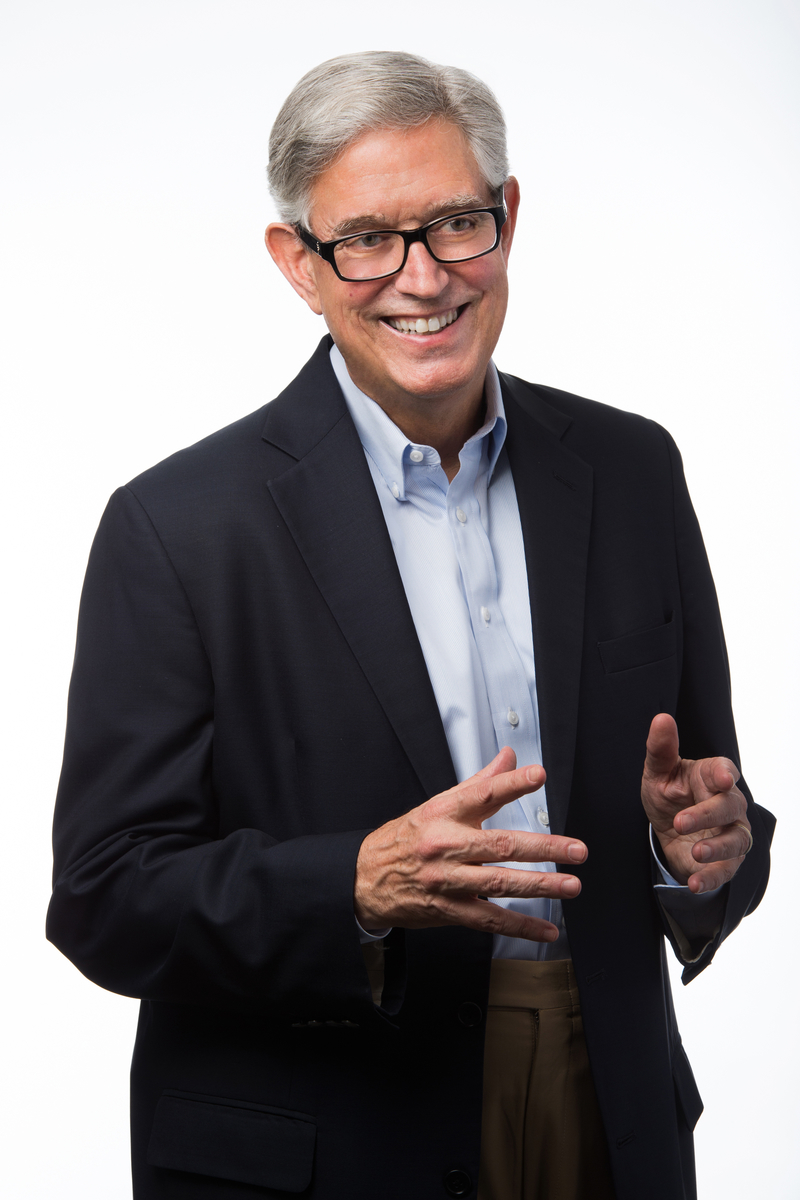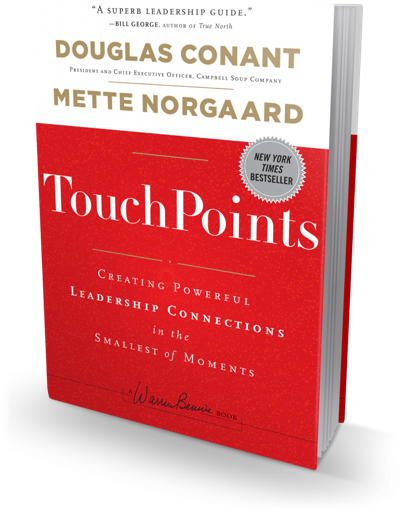
“Nothing that has ever been accomplished of any value got done merely because it was business. People took it personally.”
Douglas R. Conant has built a career around what he describes as a “maniacal focus” on developing the people who power high-performance organizations. With more than 40 years of leadership experience, he was formerly the president of Nabisco Foods Company, CEO of Campbell Soup Company, and chairman of Avon Products. Today, as a bestselling author and founder and CEO of ConantLeadership, Conant shares the wisdom he’s accumulated over decades of leading successful enterprises to help others on their leadership journey.
He says a common mistake business leaders make is focusing too much on the tasks at hand and not enough on the individuals executing them.
“Early on I started to get anchored in this thought that it’s about the people and it’s about making sure they’re in the best possible position to fight the good fight and represent our company well on the things that we’re doing well, as well as on the things that need to be addressed,” Conant says. “I try to focus on the people and enable them to be in the best possible position to deal with their tasks.”
The ability to inspire achievement in others hinges on trust; and Conant says the key to building that trust is leadership that is genuine, sincere and, ultimately, earnest. A self-described introvert, it took Conant years to truly embrace the power of authentic leadership – but when he finally did, it was a game changer.
“I found that to be genuine, I just needed to be very earnest, sincere and direct. When I did that, my credibility actually went up,” he says. “And I’ve never worked with anybody who, if they were earnest and sincere in a situation, ever came out on the short end of the stick.”
So, what does an earnest executive actually look like in practice? Conant describes four common elements:
Lead by listening
An earnest executive first seeks to thoroughly understand a situation from another point of view before making a decision or providing an answer. It’s as simple as being willing to listen.
Aligned with Stephen R. Covey’s fifth habit of highly successful people, “seek first to understand, then to be understood,” Conant’s book TouchPoints includes a simple three-step method for leading by listening: listen, frame, advance. First, listen to what others have to say, then frame the issue to make sure you thoroughly understand it, and finally help others advance past problems by contributing to a solution.
“I think everybody has something to add, and I want to try and work with them to create the best possible outcome,” says Conant. “And they know I care more about the outcome in my working relationship with them than I do about the specific issue.”
Celebrate the positive
In addition to solving problems within an organization, an earnest executive makes a point to celebrate everything that’s going well.
Conant recalls an example from his days as CEO of Campbell’s, where future (now retired) CEO Denise Morrison had an intentional practice of asking employees three questions, in a specific order: what’s working, what’s not working and what do we need to do next? Focusing first on what was going right helped set a more positive, success-oriented tone within the organization.
Provide personal attention
Conant’s own desire to celebrate achievement at every level drove him to write an estimated 30,000 thank-you notes to Campbell’s employees over the course of a decade. He credits this extra bit of personal attention with boosting the morale and performance of his employees and the company as a whole.
“Wherever you went in the world, you saw a handwritten note from me that said ‘nice job, you delivered this project on-time, under budget,’ or, ‘nice job you made this big sale to this customer,’” Conant says. “They weren’t gratuitous notes, they were notes celebrating performance. But they signaled to people that I was paying attention and that I took a personal interest, and it changed the conversation at our company in the fullness of time.”
Conant challenges executives to find ways of injecting personal attention into their interactions with the people they lead, even if it’s just walking the halls of their organization for regular face-to-face time with team members. These types of genuine personal interactions are essential to effective leadership.
“If you want people to take your agenda as an enterprise personally, you better take their agenda as a person, personally,” he says. “I think personal attention is underrated; and whether it’s a note or whether it’s stopping by somebody’s desk to acknowledge something, however you can make it personal, you win.”
Expect high performance
An earnest executive is “tough-minded on standards and tender-hearted with people.”
While Conant advises organizational leaders to prioritize personal connections, he stresses that caring about the individuals who work for you is not an excuse to lower your expectations. At the end of the day, business leaders – and the teams they lead – are expected to perform.
“You lead by listening and you try and move forward in an intelligent way, but ultimately you also have to perform,” Conant says. “And if people know that you’re listening and you want to work with them (and you will if you want to achieve the desired outcome), I find that people are responsive to that.”


